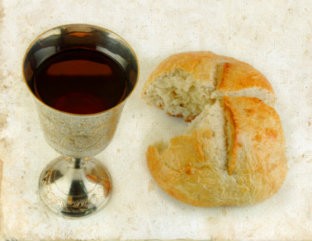Shared meal

World Communion Sunday is one of the best ideas Presbyterians ever had. The idea originated in the 1930s, a time of economic turmoil and fear and the rise of militaristic fascism abroad. Hugh Thomson Kerr, a beloved pastor in the Presbyterian Church, persuaded the denomination to designate one Sunday when American Christians would join brothers and sisters around the world at the Lord’s Table.
The idea caught on. Other denominations followed suit and the Federal Council of Churches (now the National Council of Churches) endorsed World Communion Sunday in 1940. But though the day is still noted in some denominational calendars and program materials, it doesn’t seem to be considered as important as it once was.
Of course, every Sunday is in a sense World Communion Sunday insofar as many churches celebrate the Lord’s Supper every Sunday. But we do not welcome one another at the Lord’s Table. In some churches, a place at the table is reserved for members only. Some Lutherans exclude other Lutherans. And, of course, Eucharist is restricted in the Roman Catholic tradition (although individual Catholic clergy do not always adhere to their church’s teaching on this point).




